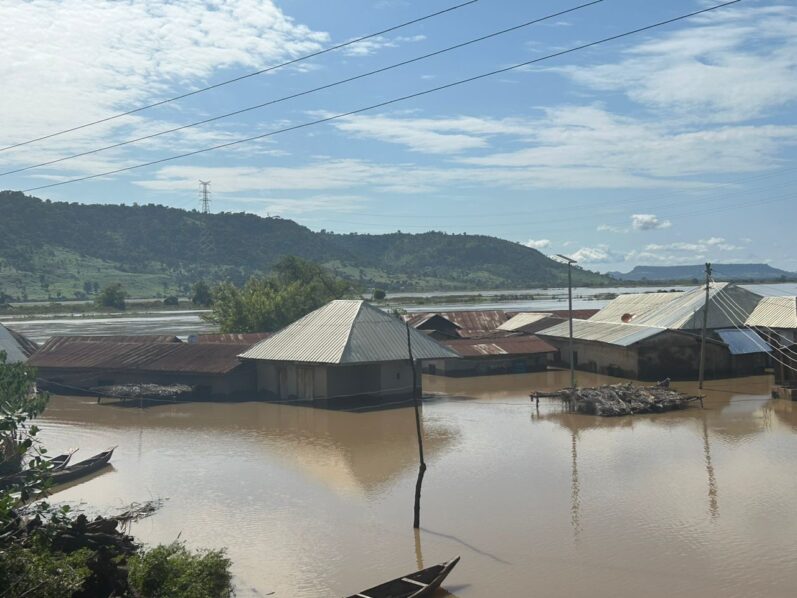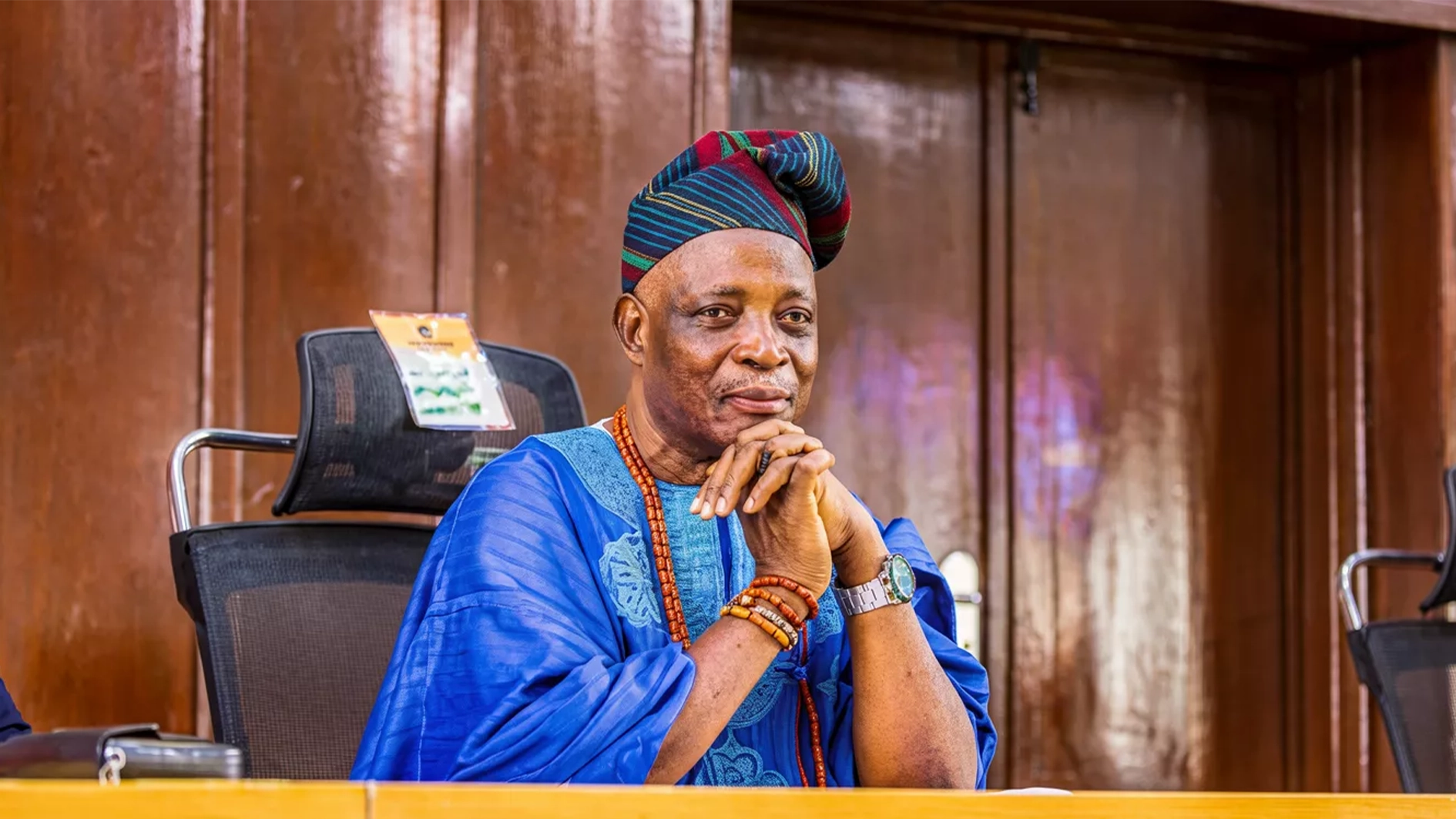
More than five million Nigerians have been displaced by floods between 2012 and 2022.
However, a vast majority of this large number of displaced persons are not accounted for in any form of Internally Displaced Person (IDP) camp, as they simply move into other communities where their influx creates stress on social infrastructure and potentially leads to conflict due to heightened competition for resources.
The Director General of the Office for Strategic Preparedness and Resilience (OSPRE)/National Centre for the Coordination of Early Warning and Response, Chris Ngwodo, disclosed this at the youth pre-conference segment of the Future of Health Conference 2024, organised by Nigeria Healthwatch, on Wednesday in Abuja.
He observed that the country is witnessing widespread flooding, a high prevalence of cholera, and other waterborne diseases with serious life consequences.
He said, “When we think of this number, 500 million people, it can be a bit abstract. But I think for perspective, what I’d like to say is that the population of Botswana is 2 million people. So, we think of it as the displacement of the population of a small country within our own population.”
Ngwodo noted that both in the short, medium, and long term, the youth bear the brunt of climate change, adding that it has a severe impact on life expectancy.
He also pointed out that 63% of Nigerians are multidimensionally poor, adding that in Nigeria, deforestation is primarily driven by energy poverty, as the cheapest source of domestic fuel is firewood, given that gas and kerosene are beyond the reach of most Nigerians.
He said, “So, they end up cutting trees because that is the cheapest thing to do. We see this, therefore, as a problem of energy poverty first. Remedially, what you do is have an aggressive deforestation programme.”
Ngwodo stated that OSPRE is currently engaging with the National Agency for the Great Green Wall on deforestation and is also working with local communities, state governments, and local governments.
He lamented that many states have not adequately mapped their ecological vulnerabilities.
He added, “In many states, they have not built the capacity to even map their own problems. So, you have to first help them build that capacity and develop a systematic understanding of the challenges they are confronted by in terms of climate change or ecological issues. Thereafter, you connect them to federal resources and provide advisory support on better utilisation of the ecological fund.”
In her welcome address, the Managing Director of Nigeria Healthwatch, Vivianne Ihekweazu, said that climate change is not just an environmental issue but also a health crisis that is already threatening the well-being of communities across the country and the wider African continent.
Ihekweazu observed that rising temperatures, shifting weather patterns, and increasing natural disasters are exacerbating health vulnerabilities—whether through the spread of infectious diseases, food and water insecurity, or the strain on already fragile health systems.
“So, in Nigeria and across Africa, these challenges hit our youth and other vulnerable populations the hardest. Comprising about 17 percent of the world’s population, Africa contributes just 4 percent of global carbon emissions, and about 3 percent of these emissions are from Egypt and South Africa. Today, we are proud to bring together some amazing young leaders to discuss one of the greatest challenges facing our generation: the impact of climate change on health. But while our youth bear the brunt of these crises, they also hold the solutions. Today, more than ever, young Africans are stepping up as leaders, advocates, and innovators, taking bold actions to secure a healthier, more resilient future. They are leveraging knowledge in environmental advocacy, public health, social justice, and community development to make lasting change.
READ ALSO: Rivers community decries poor response on floods
“Africa, with the youngest population in the world, is home to over 400 million individuals between the ages of 15 and 35. You, the youth, are at the forefront of a dual crisis: the immediate, devastating effects of climate change and the resulting threats to public health and sustainable development. In Nigeria, the average age is 18 years, and 42.5% of the population is aged 0-14 years. Let that sink in,” she added.
Speaking on the topic, “Amplifying Youth Voices for Climate Action,” the Managing Director of the Society for Family Health (SFH), Dr. Omokhudu Idogho, noted that the climate crisis is also a health crisis. He lamented that climate-related humanitarian emergencies are increasing in scale, frequency, and intensity.
Idogho stated that in recent months, many states have experienced record heatwaves and devastating floods, even in Borno and Jigawa, adding that air pollution contributes to over seven million premature deaths annually.
He said, “Food insecurity is rising, forcing people to make impossible choices between their next meal and health care. Climate change is also fueling the spread of diseases like cholera, dengue, and malaria. However, youth engagement in climate action and decision-making has been increasingly highlighted as a critical issue in recent years. Yet, civil society youth still face barriers to meaningful participation, and there are still issues regarding the establishment of dedicated youth and climate roles or platforms among many countries.”
Idogho further noted that natural disasters, droughts, and floods are limiting young people’s access to food, water, secure housing, healthcare, and education, which is a violation of their basic human rights.
He stressed that climate justice requires a people-first approach and that youth advocates deserve to have their voices heard on policies that directly impact their livelihoods. As the world grapples with the escalating impacts of climate change, it is essential to amplify the voices of young people in climate action.
Idogho, however, said that the health gains from climate mitigation and adaptation outweigh the costs and provide a compelling argument for stronger climate action.
“While we often talk about climate change as an environmental issue, it’s much bigger than that. It’s also a social, health, and economic issue—and above all, it’s a children’s rights emergency,” he said.






